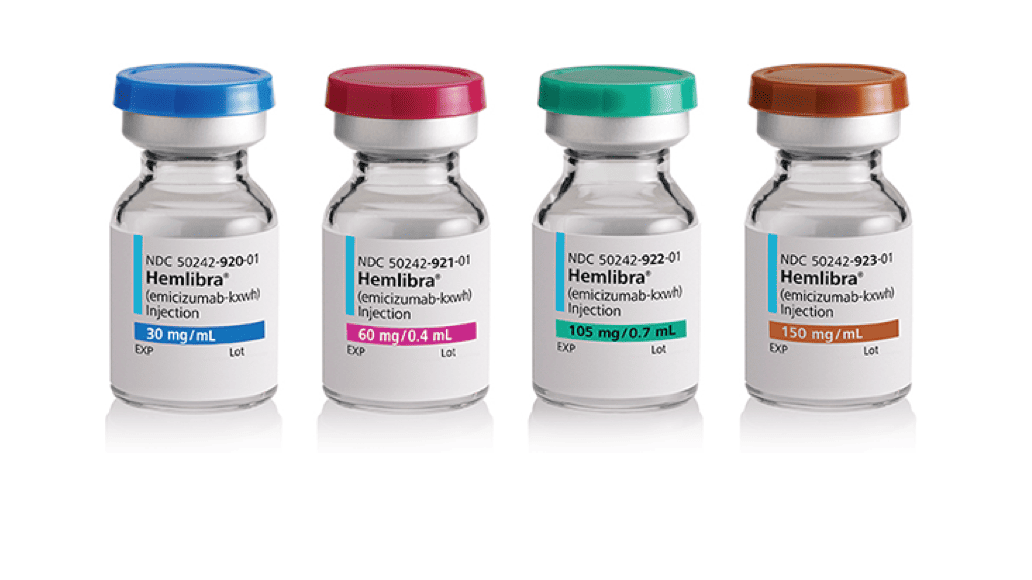
Hemlibra (emicizumab) will now be available for around 2,000 people in England living with haemophilia A, a huge expansion in its market penetration.
The drug is proving to be a star performer for Roche globally, achieving sales of $538m in the first half of 2019, and is taking market share from a host of established Factor VIII replacement therapies.
The market access agreement in England has been achieved once again via direct pricing and access negotiations with budget holder NHS England, with NICE not involved at all.
NHS England will have undoubtedly driven a hard bargain during confidential talks on the drug’s price in exchange for market access, though it releases scant details about its cost effectiveness reviews compared to NICE.
The expansion follows the July 2018 agreement on Hemlibra with NHS England based on its first licensed use, in people with haemophilia A with inhibitors (antibodies which prevent patients responding to standard factor VIII therapies) of which there are around 230 patients in England.
The new expansion is based on the March 2019 EU approval of Hemlibra for patients without inhibitors.
There are an estimated 5,930 people registered with haemophilia A in the UK, which means Hemlibra will be available to around a third of all patients. This will include many young children whose parents struggle to administer frequent infusions of Factor VIII replacement therapies.
Hemlibra can claim superior reduction in bleeds compared to standard therapy, but also provides multiple dosing options, as opposed to factor VIII replacement drugs, which must be injected multiple times per week.
“Giving patients access to world class, trailblazing drugs and therapies is a key part of the NHS Long Term Plan which aims to save thousands more lives,” said Simon Stevens, chief executive of the NHS.
“This treatment has the potential to significantly improve the lives of people with haemophilia, especially children – reducing treatment time and even ending the dangerous bleeds which can lead to life-threatening cuts and life-changing damage,” he added.
Liz Carroll, chief executive of The Haemophilia Society said: “This decision is fantastic news for our community. Current treatments can require intravenous infusions multiple times a week which can place a significant burden on people with haemophilia and their carers.”
“This decision will mean that people will have the opportunity to have treatment less frequently without intravenous access which will enable many to live their lives more freely,’’ she added.
According to Roche, in clinical trials of Hemlibra, a significant number of people with haemophilia A, with and without inhibitors, achieved zero treated bleeds. The figure increased from 70.8% in week 1-24, to 88.6% in weeks 73-96, and the drug was generally well-tolerated.
“We are delighted that NHS England will reimburse Hemlibra in patients with severe haemophilia A without factor VIII inhibitors. Hemlibra has been shown to effectively control bleeds and is the only prophylactic medicine that can be administered subcutaneously and maintains a sustained therapeutic level between doses,” said Richard Eaton, Rare Conditions Lead at Roche Products UK.
Roche says reimbursement discussions in Scotland, Wales and Northern Ireland are also currently progressing.
Competition is heating up in haemophilia, however. Alnylam’s late-stage candidate fitusiran is tipped as a major competitor to Hemlibra, while the first gene therapies are also on the horizon. BioMarin is in pole position with its candidate valrox, which it plans to submit by the end of 2019.




